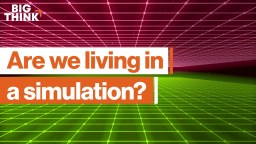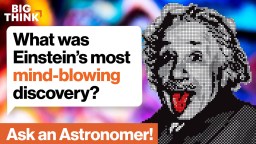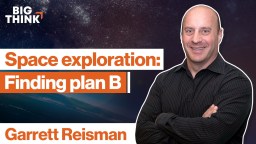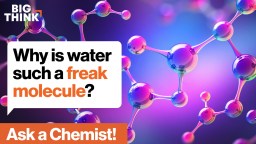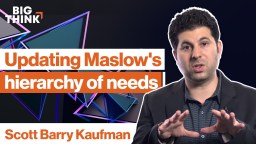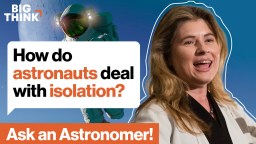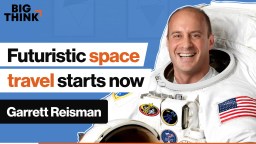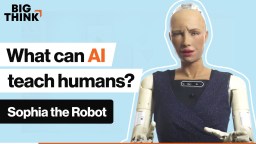science
Is this the real life, or is this just fantasy?
▸
8 min
—
with
Researchers think they know how a group of ancient sloths, who died thousands of years ago in Ecuador, met their untimely end.
This is one of countless studies that prove the positive impact of social connection and intimacy while highlighting the negative impact of isolation and separation.
If you were awaiting screaming death from the skies, you can relax. For now.
The physical action of handwashing plus the properties of soap is a one-two punch for the virus.
▸
1 min
—
with
Do space and time really exist? NASA astronomer Michelle Thaller looks at the implications of Einstein’s famous equation E=mc2.
▸
11 min
—
with
Why did the dinosaurs go extinct? Because they didn’t have a space program.
▸
4 min
—
with
The visual languages of comics and graphic novels are great exercise for developing brains.
Dr. Kate Biberdorf explains why boiling water makes it safer and how water molecules are unusual and cool.
▸
3 min
—
with
It’s likely the most complete skeleton that’s ever been discovered of the strange Gondwanatheria mammal group, which roamed the ancient supercontinent of Gondwana alongside dinosaurs.
How does the COVID-19 pandemic affect relationships? One study aims to find out. If you have 20 minutes, take the survey!
Rather than trekking up a mountain, a more accurate metaphor for human development involves navigating the waters of a choppy sea.
▸
6 min
—
with
Researchers decoded the love signals of lizards “spoken” through chemical signals.
Being stuck at home is not as intense as being away from Earth, but there are ways to cope in either scenario.
▸
5 min
—
with
All that matters is the here and now.
▸
4 min
—
with
If confirmed, that’s 10 times the official number of infected New Yorkers.
If a patient requires a ventilator, a new study finds they have a low chance of survival.
Olive oil leads to the discovery of a law that applies to atoms, superconductors, and even high energy physics.
A binary white dwarf in a tight, super-fast rotation looks to be pumping out gravitational waves.
How can we promote the creation of new neurons – and why is it so important?
None of us know where this is heading, but we can still learn from the moment.
A team of scientists created a new type of robot inspired by an octopus, and it could be a major breakthrough in the field.
Astronaut Garrett Reisman talks NASA, SpaceX, and where we’re headed next.
▸
4 min
—
with
The pandemic is exposing long-fractured aspects of our society.
Study shows ripples across a newly fertilized egg are similar to ocean and atmospheric circulations.
Through experiencing time in a nonlinear way, can artificial intelligence provide us more perspective?
▸
3 min
—
with
Two types of thinking have a time-sharing deal going on in your brain.
There are scientifically proven ways you can improve your self-esteem, right now.
Is obsessive shopping a compulsion, an addiction, or both?
A new batch of papers reveals some of Mars’ subterranean secrets.
